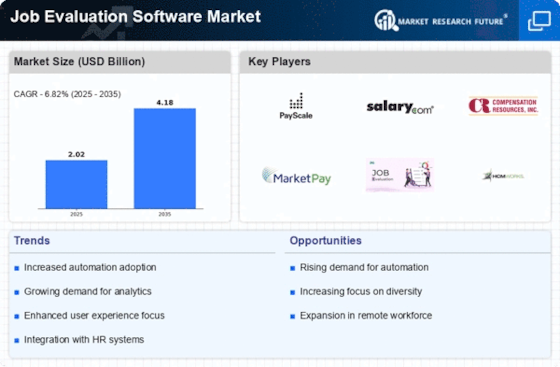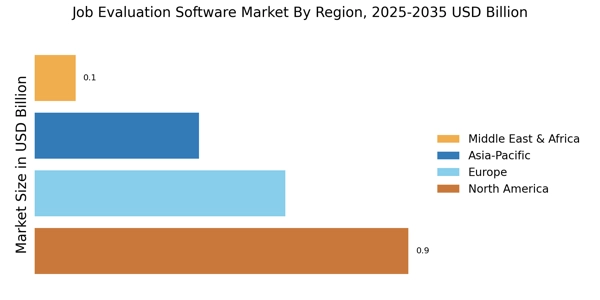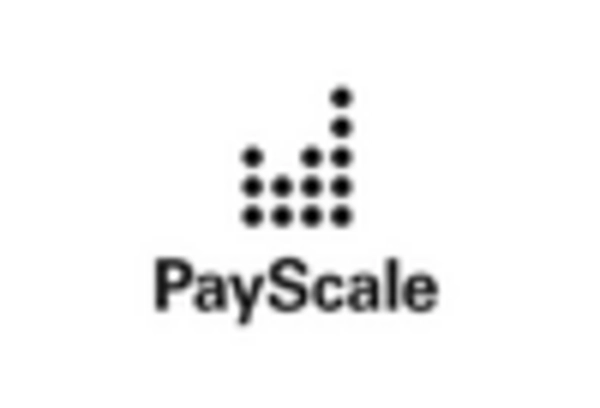Focus on Diversity and Inclusion
The Job Evaluation Software Market is increasingly shaped by a focus on diversity and inclusion within organizations. Companies are recognizing the importance of equitable job evaluation processes that promote diverse hiring and career advancement opportunities. This shift is supported by research indicating that organizations with diverse workforces are 35% more likely to outperform their competitors. As businesses strive to create inclusive environments, the demand for job evaluation software that can analyze and address potential biases in job roles is likely to increase. This trend not only enhances organizational culture but also aligns with broader societal expectations.
Shift Towards Remote Work Models
The Job Evaluation Software Market is adapting to the shift towards remote work models, which has become increasingly prevalent. Organizations are reevaluating job roles and responsibilities to accommodate flexible work arrangements, necessitating effective job evaluation tools. This transition requires software that can assess job performance and productivity in a remote context. Data indicates that companies that utilize job evaluation software to manage remote teams report a 25% improvement in performance metrics. As remote work continues to be a viable option for many organizations, the demand for job evaluation software that supports this model is likely to grow, influencing market dynamics.
Increased Demand for Employee Engagement
The Job Evaluation Software Market experiences a notable surge in demand for tools that enhance employee engagement. Organizations increasingly recognize the importance of aligning job roles with employee expectations and career aspirations. This trend is driven by a growing awareness that engaged employees contribute significantly to productivity and retention rates. According to recent data, companies that implement effective job evaluation practices report a 20% increase in employee satisfaction. As businesses strive to create a more engaged workforce, the demand for sophisticated job evaluation software that can provide insights into role alignment and employee feedback is likely to rise.
Regulatory Compliance and Standardization
The Job Evaluation Software Market is significantly influenced by the need for regulatory compliance and standardization across various sectors. Organizations are compelled to adhere to labor laws and industry standards, which necessitates the implementation of robust job evaluation frameworks. This compliance not only mitigates legal risks but also fosters a fair and equitable workplace. Recent statistics indicate that companies utilizing job evaluation software to ensure compliance experience a 15% reduction in disputes related to job classifications. As regulatory environments evolve, the demand for software that can adapt to these changes is expected to grow, driving innovation within the market.
Technological Advancements in HR Solutions
The Job Evaluation Software Market is propelled by rapid technological advancements in human resources solutions. The integration of artificial intelligence and machine learning into job evaluation software allows for more accurate assessments of job roles and competencies. These technologies enable organizations to analyze vast amounts of data, leading to more informed decision-making. Recent market analysis suggests that the adoption of AI-driven job evaluation tools could enhance efficiency by up to 30%. As organizations seek to leverage technology for competitive advantage, the demand for innovative job evaluation software is expected to rise, reshaping the industry landscape.

















